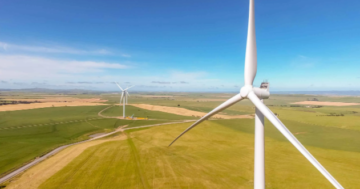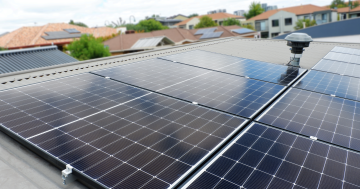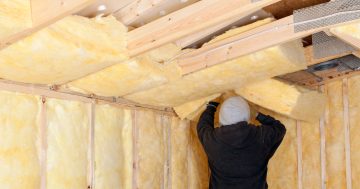
Transitioning to a carbon-free city.
There is a strong consensus across the Canberra community about the need for us to work to address climate change. Government has shown leadership through initiatives such as the implementation of the 100 per cent renewable electricity target which we will meet next year.
As well as strong support for this work, there is an understanding that there are costs to this transition to a carbon-free future. The community seems comfortable with these costs if they are modest and transparent. Despite a lot of commentary around the costs of this transition, it does seem the case that on an average basis, the cost of transitioning to renewables has been only one component of the significant year on year price increases for electricity that consumers have faced.
A key challenge for all of us, Government and community, is to ensure that fairness and equity underpin this transition. We need to actively work to ensure that everyone is supported to transition, and those who are least able to bear costs of this transition are fairly treated through this period.
For low-income households, concessions and rebates will continue to be one way that price increases can be managed for these households. The recent increase in the level of the rebate for eligible households will make a difference for these households. It won’t however deal with the longer-term issues of how to reduce energy use and costs.
In the early days of designing incentive schemes to promote the shift to renewables, benefits often flowed to people with the capacity to invest in the upfront costs of new technologies and programs such as feed-in tariffs and solar subsidies did flow to higher income households. But things have been changing in recent years. Initiatives such as the solar rebate scheme for lower-income households mean that there will be more opportunities for lower-income households to access rooftop renewable energy – not only generating electricity from renewables but reducing household costs.
For most low-income houses one of the best investments will be improving energy efficiency. This is a real issue for a city where much of our housing stock has not been built for the climate, and includes ageing inefficient heating and cooling. For some time, the ACT Government has required electricity retailers to achieve energy savings in households and small to medium businesses. As part of this, it has mandated that 20 per cent of this activity must be targeted to priority households,which are those eligible for energy concessions (which flow as a result of being a low-income household); households experiencing financial hardship; households who are accessing energy retailers or other hardship programs; and those who are in social, community or disability housing. Recently, the Government reviewed this target and after stakeholder consultation, increased it to 30 per cent. This means that there will be greater access for those most likely to be struggling with energy costs to access a range of supports to improve energy efficiency in their property and reduce costs. This increased target will make a big difference and will be welcomed by community groups.
But what else needs to happen? There are some simple changes that would make a real difference to low-income households, particularly in public housing stock where there is significant renewal already happening.
Replacing old, inefficient heating and cooling can reduce energy use, emissions, costs and in many cases increase health and wellbeing, comfort and liveability. Another idea is to look at the type of energy that households are using. Many houses continue to be duel fuel properties (with both electricity and gas), which means higher costs, continued emissions and having to pay out two supply fees. A commitment to moving towards single fuel properties would be a win for the environment and for households.
How we support everyone in our community to reduce our energy use and transition to energy sources that are free of carbon emissions will continue to be an important discussion for us all.
What other ways do you think we could support everyone to reduce their energy use and ensure a fair transition to a carbon-free future?




















